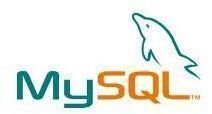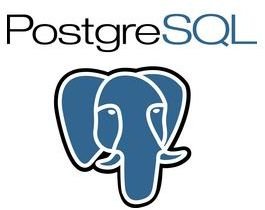Software For Creating Databases In Linux
Free Databases!
Linux provides all kinds of utility and application software and databases in Linux are of the specialized variety. The database products described below offer a number of features providing management and development. Some of these are powerful competitors to commercial database products, given that they are amendable to suit specific environments and are free to use and develop.
Postgres SQL (4 out of 5)
Postgres is possibly the most advanced truly open source database available on the market, including rich features, scalability and the capability to embed into other procedural languages. The source code is freely available for amendment for organization’s own purposes.
It developed at the University of California at the famous Berkley Computer Science department. The database utilizes object-oriented technology. It is now a de-facto standard for databases at thousands of workplaces and academic institutions, and is widely used by individuals.
Image Credit: PostgresSQL, https://www.postgresql.org/
The powerful features include:
* Complex query handling.
* Triggers.
* Foreign and primary key constraints.
* Embedding capability for other languages.
It is a fierce competitor to commercial database software, such as Oracle enterprise products and SQL Server, and is an attractive proposition given the liberal license conditions attached to the product.
MySQL (5 out of 5)
MySQL is reputed to be the most popular database in the world. The other major player in the Open Source database market is Postgres SQL, and there is keen rivalry between them. MySQL is the database of choice for owners of thousands of dynamic websites, usually written in the server language PHP as they are complementary software products. MySQL operates as a client/server configuration and includes numerous additional features and libraries. It provides the ability to connect to other databases such as Oracle via ODBC connections. It is fast and reliable, with the added advantage of portability so that it can run on a number of operating systems, including Linux, Windows and Apple Mac. It is a minimalist database environment and is easy to use. Various tools exist such as PHP MyAdmin to manage MySQL and change the configuration settings as and when needed. It is scalable so that it is useful for individual users or large corporations.

Image Credit: MySQL, https://dev.mysql.com/
Oracle Database 10g Express (Oracle Database XE) (3 out of 5)
Oracle is a newcomer to the Open Source database market, as they only provided commercial database packages until recently. The Express edition is a response to free competitors in the open source market, and it provides a method for marketing their flagship commercial database product.
The express edition is a scaled-down version Oracle database with a small size based on the 10g Release. Like other open source products, it is free to use for development, installation and distribution. It is also vastly simpler to administer than a fully blown commercial version of 10g usually seen in an enterprise environment.
Oracle points out that their Express product is a good starting point for PHP, Java, .NET, XML and other open source technology developers. For DBAs, it is a good training environment to increase skills and to use for deployment experience.
Commercially, it can also be used by small software suppliers and other companies requiring a starter database to use to run their business. It is also widely used in educational institutions.
The Oracle Express product can be installed on a number of different platforms, but they do point out that the resources needed for the express version can be heavy such as the need to provide for storage of up to 4GB for user data, and 1GB of memory.
However, Oracle Express is widely supported with a community of experienced and inexperienced users of Oracle alike, and the community also has the benefit that professionals from commercial Oracle environments can also assist with familiar problems.
Ozone (4 out of 5)
Some Linux databases are not based on the traditional relational database model. Some are object oriented databases such as the Ozone database project. Ozone is written in Java and is an open source, object oriented database management system. The project welcomes developers to join in with the project and to enhance and discuss ideas with the project. The Ozone product can process data in a transactional manner. XML data can be stored as part of the W3C compliant Dom implementation. Classes are also supported in Apache for some modules. Applications can be migrated to and from the Ozone environment. The objects are stored in a clustered storage and caching system. Therefore, it does not use a back end database or related mapping technology to save the objects.

Image Credit: Ozone Project, https://sourceforge.net/projects/ozone/
Mckoi (4 out of 5)
Mckoi SQL is an open source database based on traditional architecture using a shared disk and memory. The Java based product includes a number of useful features, including write-ahead logging, a feature available in numerous commercial databases.
The database is stable, but the latest version was created back in 2004. It is available under the GNU General Public License (GPL) version 2. The software is free to use and distribute under the terms of the license.
The database can be included in other applications to form a stand-alone database. The multi-threading capability and additional features make it a handy and scalable object-oriented database engine.
References
Mckoi, https://www.mckoi.com/Mckoi%20SQL%20Database.html
MySQL, https://dev.mysql.com/
Oracle Express, https://www.oracle.com/technetwork/database/express-edition/overview/index.html
Ozone, https://www.ozone-db.org/frames/home/what.html
PostgresSQL, https://www.postgresql.org/
